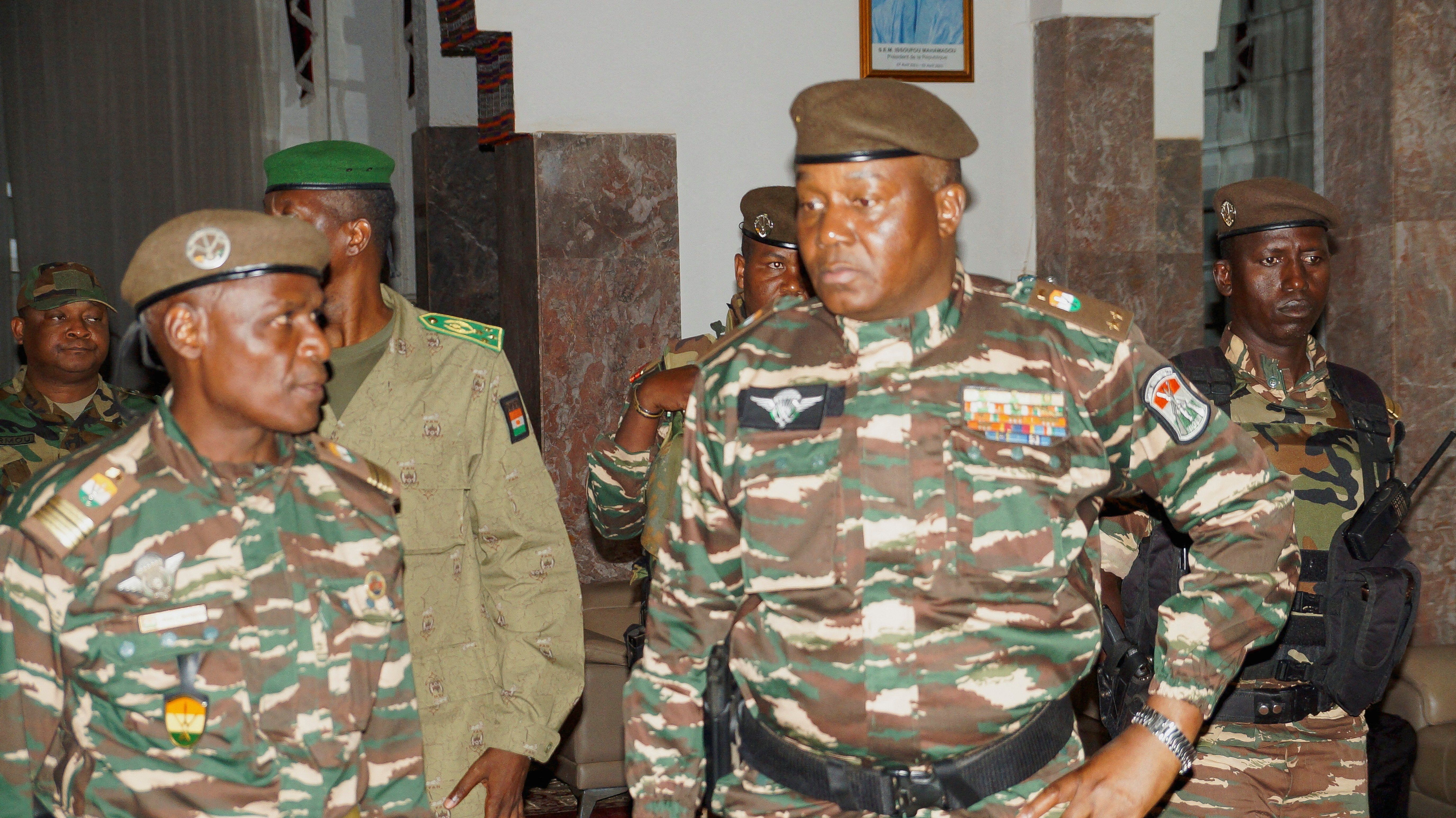August 03, 2023
The clock is ticking down to a deadline for junta leaders in Niger to reinstate the democratically elected president ousted last week in a coup.
A group of West African states known as ECOWAS and led by Nigeria said that it would be willing to intervene – including militarily – if the junta doesn’t reinstate President Mohamed Bazoum, who is now under house arrest. Bazoum was elected in 2021 in the country’s first democratic polls.
But coup leader General Abdourahamane Tchiani has so far dismissed the threat, calling on supporters to be ready to defend their cause.
ECOWAS, meanwhile, has imposed sanctions on Niger, a landlocked country and one of the poorest in the world. And on Thursday, Nigeria – which provides 70% of Niger’s electricity needs – upped the ante by cutting the country’s power supply.
Indeed, Niger is an important geopolitical ally for the West, with France and the US using it as a base from which to launch their counterterror operations in the Sahel region.
However, Mali and Burkina Faso – two other Sahelian states that have experienced coups in recent years and cultivated closer ties with the Kremlin over the West – say that any attack on Niger will be deemed an attack on them all.
As the deadline looms this Sunday, we’re watching to see how far Niger’s neighbors are really willing to go to oust the junta. Intervention of any kind could again bring bloodshed to a region long plagued by violence.
More For You
- YouTube
On Ian Explains, Ian Bremmer takes a look at the growing surge in global conflict and the ripple effects of so much violence, war, and armed struggle throughout the world.
Most Popular
Think you know what's going on around the world? Here's your chance to prove it.
French President Emmanuel Macron, German Chancellor Friedrich Merz, Ukrainian President Volodymyr Zelenskiy, U.S. Special Envoy Steve Witkoff and businessman Jared Kushner, along with NATO Secretary-General Mark Rutte and otherEuropean leaders, pose for a group photo at the Chancellery in Berlin, Germany, December 15, 2025.
Kay Nietfeld/Pool via REUTERS
The European Union just pulled off something that, a year ago, seemed politically impossible: it froze $247 billion in Russian central bank assets indefinitely, stripping the Kremlin of one of its most reliable pressure points.
Big global stories. Real conversations with world leaders. Our award-winning global affairs show, GZERO World with Ian Bremmer, goes beyond the headlines on the stories that matter most. Here’s a look back at the 10 most quotable moments from this year’s episodes.
© 2025 GZERO Media. All Rights Reserved | A Eurasia Group media company.
